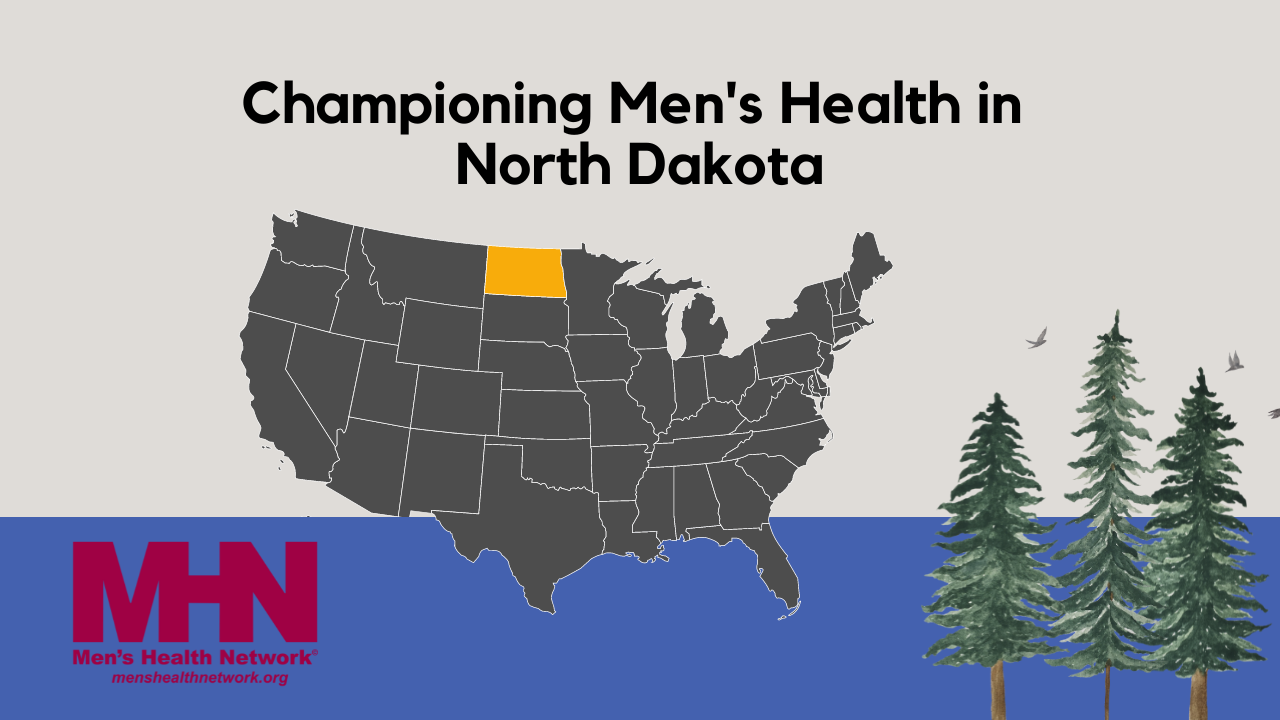This month’s recognition of Men’s Health Month provides a timely opportunity to celebrate the longstanding relationship between Men’s Health Network (MHN) and the Patient-Centered Outcomes Research Institute (PCORI) and to examine some of the lessons we have learned together that point the way forward in addressing the highest priority health problems facing men today. PCORI shares MHN’s particular concern with mental and behavioral health, which constitute the largest portion of PCORI’s overall portfolio and has been the topic of a series of expert panel convenings, organized by MHN and funded in part by PCORI Engagement Awards, over the past three years.
We are grateful for this continuing partnership and the strong support that Men’s Health Network has shown PCORI, going back to our initial authorization in 2010 and again as we approached reauthorization in 2019. Our two organizations share a good deal in common in our approach to health and health research. The MHN mission to “reach men, boys, and their families where they live, work, play, and pray” resonates strongly with our new strategic plan, which includes a sharper focus on the social determinants of health and the specific goal in our Research Agenda of “health promotion and illness prevention by addressing health drivers that occur where people live, work, learn, and play.”
The May 2019 Men’s Health Network–PCORI Conference on Behavioral Health Issues in Males is an excellent example of this concordance in approach and of the value of bringing together a wide range of stakeholders—including patient advocates, policymakers, men’s health activists, researchers, health educators, and clinicians—to get a fresh perspective on longstanding problems. The conference, convened to address “Behavioral Aspects of Depression and Anxiety in the American Male: Identifying Areas for Patient-centered Outcome-oriented Needs, Practices, and Future Research,” examined the roots of the fact that, as the conference report put it, “despite the growing resources dedicated to health and wellness—men in America live shorter, less-healthy lives than do American women. In addition, men die younger and at higher rates than women from nine of the 10 leading causes of death in America.”
At that 2019 conference, then-MHN Board member Jean Bonhomme, MD, MPH, noted that men’s life expectancy relative to that of women has declined since 1900, from near parity to more than five years difference, while David Gremillion, MD, noted that one of the key reasons for this is lack of attention to preventable chronic conditions—due in part to men’s lack of engagement with the health care system. Our MHN researcher colleagues have often expressed a deep concern about the overall decline in men’s and boys’ health over a period of many years.
Mental illness clearly takes a terrible toll on quality of life, and on life itself – with the suicide rate having increased more than 35% between 1999 and 2018—especially among men, who experience a rate of suicide nearly four times higher than for women. But we also know that mental illness is a contributing factor in the morbidity and mortality caused by chronic disease, as poor mental health can get in the way of patients seeking the care and treatment they need. MHN researchers have also helped to identify some of the many additional psychosocial and cultural factors that can prevent men seeking medical care that would address preventable chronic conditions.
The recommendations coming out of the 2019 conference—and the series of additional smaller MHN panels funded through PCORI Engagement Awards—provide excellent examples of the kind of topics and questions that could be addressed through the patient-centered outcomes research that PCORI funds. Key findings identified in MHN reports from these convenings touch on many areas that are also high priorities for PCORI, including:
- The need to support community program leaders in collecting data at the community level and to engage in research on their work with men. We know from many conversations with stakeholders that they need support to overcome the barriers to applying for funding and conducting research; providing this support will be a high priority for PCORI.
- The need to address health disparities and structural issues that COVID-19 has brought to new light, especially in under-represented communities. Addressing disparities has been a key goal for PCORI since its earliest days and will be even more so under our new strategic plan, which includes the National Priority for Health of “Achieve Health Equity.”
- The importance of paying attention to the cultural aspects of attitudes about health and healthcare. A PCORI-funded study published in 2019 examined the role of culturally conditioned masculine gender identity in the health-seeking behaviors of African-American men, and suggested ways to leverage aspects of this cultural gender identity, such as the desire to support family, to enhance male health-related behaviors.
- Encouraging the use of segmented health messaging and messengers who are trusted in the community to help reach populations that may be resistant to health messages for historical or cultural reasons.
- The need to meaningfully engage patients and others so as to clearly see the perspectives of all stakeholders. Our MHN colleagues have told us, for example, that many screening tools for depression are designed primarily for women, leading to underreporting of depression in men and boys, and that clinical settings are often perceived by some male patients as being designed for women, in their hours of operation and general approach.
All of these findings offer promising avenues for truly patient-centered research that tackles problems identified by patients and involves patients and many other stakeholders all the way through the research process to dissemination and implementation of results. As PCORI enters a new phase of its work—guided by our newly adopted strategic plan—we look forward to strengthening our partnership with MHN and many other partner organizations to fulfill our mission of advancing a healthcare system that is more efficient, effective, equitable, and patient-centered.
Photo by UX Indonesia on Unsplash




